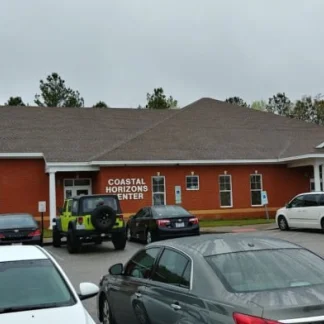Fayetteville VA Medical Center - Brunswick County Community Based Outpatient Clinic
Fayetteville VA Medical Center - Brunswick County Community Based Outpatient Cli...
Coastal Horizon Center is a drug and alcohol rehab facility located in Shallotte, North Carolina. They provide substance abuse, mental health, and housing services for adults, adolescents and families.
Addiction-related services include outpatient addiction treatment, a specialized opioid treatment program, and regional residential treatment services.
Intensive outpatient program (IOP) This 12-week program is for adults 18 and over and consists of group and individual therapy, case management, relapse prevention, emotional regulation, and communication skills. It’s offered Monday, Wednesday, and Friday for 3 hours each day.
Opioid use disorder treatment This licensed opioid treatment program offers medication assisted therapy, medication evaluation, individual and group counselings, as well as ongoing recovery plans and support.
Regional residential treatment services The HARRTS program is a unique treatment approach that engages individuals in the area who have been through acute hospitalizations or inpatient treatment and connects them with a local network of recovery homes.
Contact us for more information: (910) 754-4515

Connect with Coastal Horizons Center by calling their admissions team directly.
(910) 754-4515 Website Get DirectionsGroup therapy is any therapeutic work that happens in a group (not one-on-one). There are a number of different group therapy modalities, including support groups, experiential therapy, psycho-education, and more. Group therapy involves treatment as well as processing interaction between group members.
Fayetteville VA Medical Center - Brunswick County Community Based Outpatient Cli...
South Brunswick Counseling Services is a private rehab located in Brunswick, Nor...